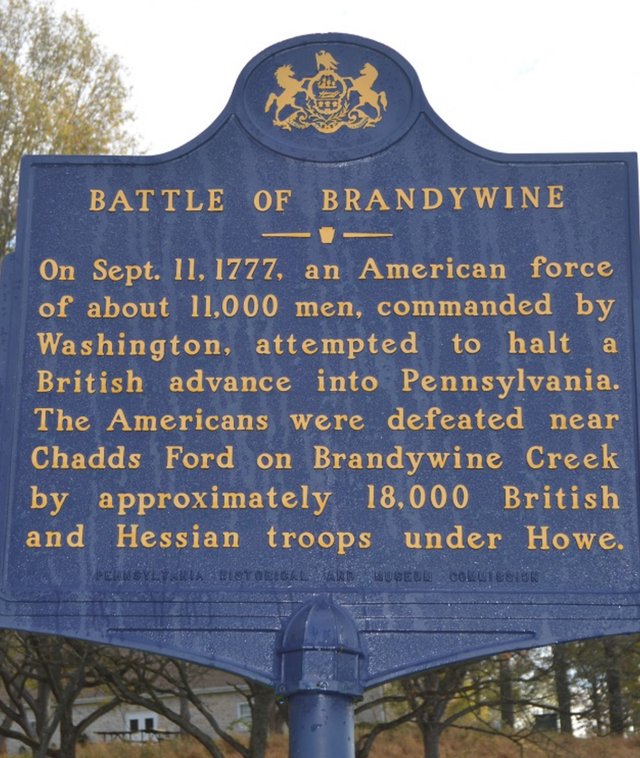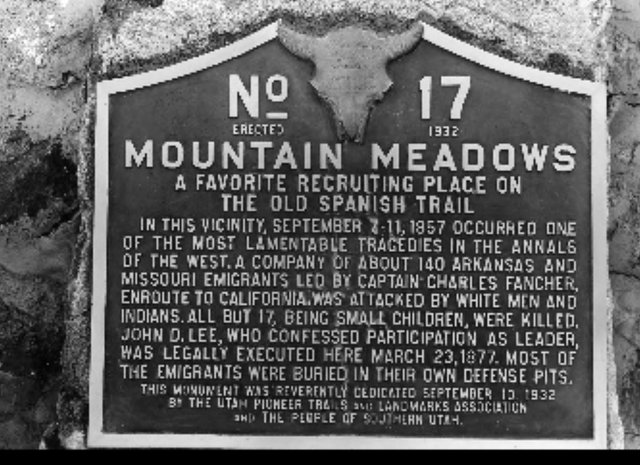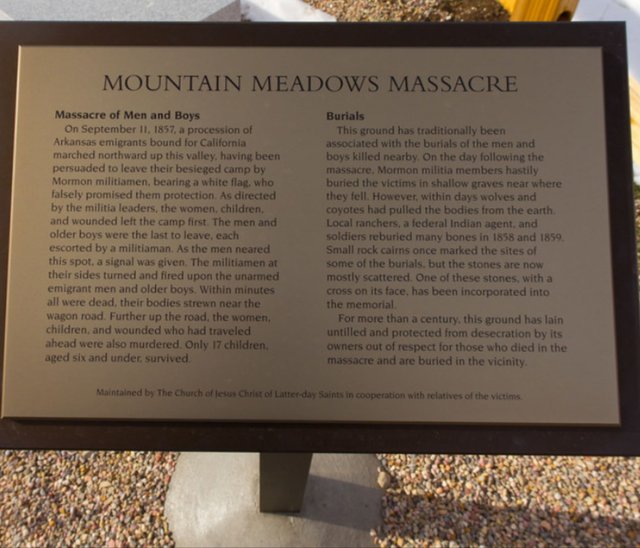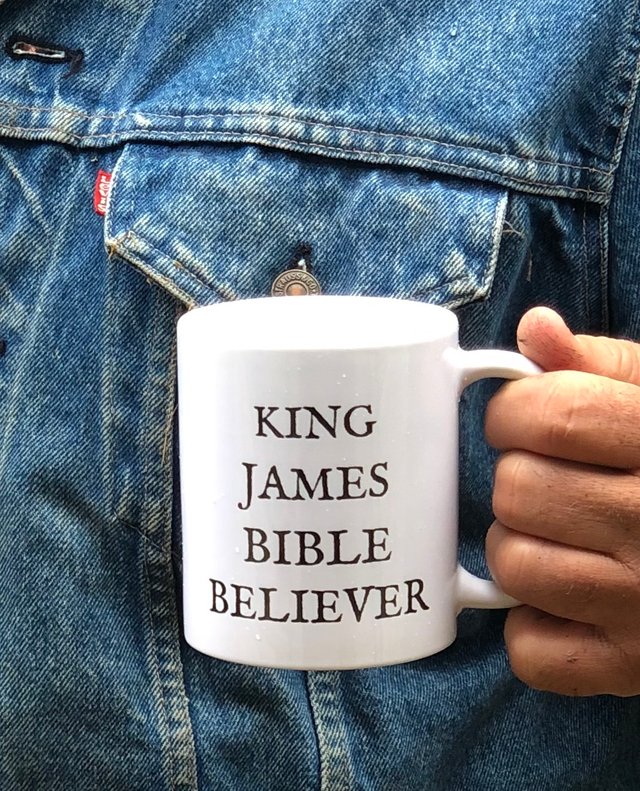Four 9-11s: History’s Tragedies and Heaven’s Answer
The 9-11 That Was Forgotten
If I can remember correctly most September 11ths in my life have been an annual day that has come and gone without much fanfare—working all day, or on Sundays going to church, on weekends taking advantage of fall’s cooler days for yard sale excursions, or, when I was still a student, spending my first week in classes before heading home to Normalville.
My Own 9-11
On October 18, 1985—sixteen years before the Twin Towers fell, and more than two centuries after Washington stood at Brandywine—I came to know Christ. I was truly born again, not by church tradition, not by the rituals of confirmation, not by memorized catechisms, but by the living Word of God.
I can still see it: a simple table, a worn Bible between us, and a gospel preacher with calm, steady patience walking me through God’s gracious plan. He read words that seemed to leap off the page and land in my chest:
“Christ died for our sins according to the scriptures; And that he was buried, and that he rose again the third day according to the scriptures” (1 Corinthians 15:3–4).
I’d heard them before, but not like that. Suddenly it wasn’t just that Christ died—it was that Christ died for me.
He led me down the Romans Road. Verse by verse, my excuses thinned, my pride cracked, and the truth stood there without makeup: I was guilty—a sinner under condemnation. No ritual, no good intention, no religious effort could wash me clean. Then he showed me that Jesus wasn’t one way among many; He was—and is—the only way. The Savior who came, bled, and rose again…for me.
I’d cracked open the Bible as a kid. I had one of those huge antique pulpit Bibles from the 1890s. I went through confirmation. I could recite catechisms. I even started learning classical organ so I could one day play the pipe organ at church. They let me try it once, and I’ll never forget it—the Toccata and Fugue in D Minor thundered through the building, and for a moment I felt like I was touching heaven. I was an Episcopalian!
But none of that gave me life. None of it reached my heart. That day, seeing my guilt and seeing Christ crucified and risen in my place, I called on the name of the Lord, and He saved me—just as He promised:
“For whosoever shall call upon the name of the Lord shall be saved” (Romans 10:13).
Not long after, I sat under my very first sermon as a new believer. The preacher opened to Proverbs 11:30:
“The fruit of the righteous is a tree of life; and he that winneth souls is wise.”
Those words sank deep into me. I thought, If this is true, then this is what life is all about—reaching out, winning souls, letting Christ bear fruit through us. It stirred me to think seriously about separation, about what it meant to be set apart for Him, and about outreach, about why we are left here after salvation.
I couldn’t understand why everyone didn’t burn with the same desire. But I knew God had lit something in me, and it has never fully gone out.
Theology came later—definitions, doctrines, details unfolding over time. First came Christ. And once He had me, I couldn’t keep quiet. Not to win arguments, not to parade knowledge, but to point other sinners to the same Savior who forgave me.
And looking back now, I can see how God was already arranging circumstances. Years before I ever studied Mormonism, or even thought about it deeply, the Lord was planting seeds in me about winning souls. Not long after, He brought across my path a young man—same age as me, about twenty-five or twenty-six, a recent graduate of Brigham Young University. Smart. Polite. Well-spoken. A little quirky, but deeply trained in Mormon doctrine. He shared his faith with me, and I listened. Then I opened the Bible and shared Christ with him.
One by one, the claims crumbled under Scripture’s plain light. Jesus is not the spirit-brother of Lucifer. God is not a once-mortal man exalted on a distant planet. There were no golden plates in “Reformed Egyptian” hidden in a New York hillside. The American Indians are not lost tribes of Israel. We laid the claims next to the Book, and the Book spoke.
By grace, that young man trusted Christ. He got saved. Then he handed me his Mormon library—the Book of Mormon, Doctrine and Covenants, Pearl of Great Price—plus manuals and Q&A booklets stacked high. I read. And the weight of it landed: this wasn’t another branch on Christianity’s tree. It was another gospel with another Jesus, exactly what Paul warned about:
“For if he that cometh preacheth another Jesus, whom we have not preached, or if ye receive another spirit, which ye have not received, or another gospel, which ye have not accepted, ye might well bear with him” (2 Corinthians 11:4).
“At the time, I thought it was just one soul won and one library of falsehoods exposed. But years later, on September 11, 2001, as I sat watching the towers fall, and then again in 2025 when Charlie Kirk was shot down by a young man raised in Mormonism, God reminded me of the thread. He had been working long before. He had let me see the counterfeit up close, not so I could boast in myself, but so that when these days came, I might recognize it for what it was and point others, not to me, but to the true Christ Jesus—and away from the spirit of Antichrist.”.
What Is It About September 11?
Which brings me to another question: what is it about September 11?
Dates that ought to sear themselves into a nation’s conscience are often the very ones we let slip into the background.
Even now, the headlines of 9-11—the day the Twin Towers fell and thousands perished—grow smaller with each passing year. A tragedy that once united us drifts toward becoming just another square on the calendar.
We’ve seen this before. President Franklin Roosevelt called December 7, 1941, “a day that will live in infamy.” Yet even Pearl Harbor has blurred around the edges for a distracted generation.
And here we are again—another crossroad, another wound, another moment when choices must be made. The world urges us to move on, to sand down the sharp edges, to keep everything “positive.” But history unremembered is history repeated.
Ask the men who stood with Washington at Brandywine in 1777, when General Howe’s redcoats crashed down on the American line. They remembered. They carried the scars. So what is it about September 11—1777, 1857, 2001—that threads these days together? Perhaps this: man may forget, but God does not.

September 10, 11, and 12
And now, another September. Fast-forward with me to September 10, 2025. Charlie Kirk stood before thousands at Utah Valley University—direct, passionate, unashamed. Then a rifle cracked from a rooftop. Charlie fell.
The crowd erupted in chaos—shouts, screams, bodies diving for cover. Phones shot into the air, trying to capture what hearts could hardly process. In an instant, what had been a gathering of energy and conviction was shattered by violence. Another day of resolve and purpose became another day of blood and loss. Another mark upon the calendar of September.
Who was this man? Why did his death matter? To some, he was only a conservative commentator. To others, he was an agitator. But at the core, he was a believer in Jesus Christ—unashamed to confess His name in an age when many would rather silence the truth than hear it.
Within minutes, slow-motion clips spilled across social media—Charlie collapsing, bleeding out like a sacrifice before a stunned crowd. Millions watched the same awful seconds on their phones. The nation reeled.
The very next morning was September 11. Memorials already planned went forward. Names were read. Candles flickered. Moments of silence honored those lost in 2001. And yet, the headlines led with the assassination of Charlie Kirk. In one sense, understandable—fresh blood tends to overshadow remembered blood. In another sense, sobering—even a day we vowed never to forget can be pushed aside when the world’s attention swivels.
Then came September 12. The manhunt ended. A suspect, raised in Mormonism, was identified and arrested. How long investigators knew what they knew—we may never learn, and perhaps we don’t need to. To the watching public, the shock had an endpoint. But in truth, the questions remain.
The Mountain Meadows Massacre
While thinking on these things, and searching for meaning—for that scarlet thread of God’s working power through history—my mind returned again to September 11. Not 2001. Not 2025. Not even 1777. But 1857.
Just picture it: a wagon train of emigrant families—the Baker-Fancher party—rolling toward California. Looking for a new life. Many were Bible-believing Methodists. Not soldiers. Not agitators. Ordinary American families: farmers, mothers, fathers, children. Wagons creaking. Cattle grazing. Hymns. Hope.
They passed through southern Utah at a perilous moment. Mormon militia, inflamed by Brigham Young’s fiery rhetoric and the paranoia of the Utah War, encircled them. For five tense days the emigrants were besieged. Then came the deception. Under a flag of truce, the “Saints” promised safe conduct if the travelers surrendered their arms. Exhausted and desperate, they agreed.
It was a lie. Once divided into small groups and marched out, a signal was given. The militia turned on them—joined by Paiute Indian allies—and the killing began. Men. Women. Older children. About 120 lives cut down by betrayal. Seventeen little ones, judged too young to “remember,” were spared—kidnapped into Mormon homes until federal officials later rescued them and returned them to what family remained.
Treachery. Slaughter. And all of it under the shadow of Brigham Young—false prophet, territorial governor, and militia commander. His signature may not appear on a written order, but his voice lit the tinder.
The Hypocrisy of Clean Hands
The Civil War soon eclipsed the massacre with larger headlines—and gave cover for silence. While the nation bled, the Saints sat apart, waiting and consolidating power. They remembered; they only hoped the rest of us would forget.
Fast-forward again. The LDS Church condemned the murder of Charlie Kirk—swiftly, publicly. And murder is evil. But here’s the rub: they still venerate Brigham Young as a prophet of God. Condemn one killer; canonize the system that bred a massacre. That is not repentance. That is reputation management.
“When ye spread forth your hands, I will hide mine eyes from you: yea, when ye make many prayers, I will not hear: your hands are full of blood” (Isaiah 1:15).
Religion can polish an image, but only Christ can cleanse a heart. Only His blood can wash away guilt. Man’s hands are bloody, but Christ’s are pierced. His wounds cleanse. His cross reconciles. His resurrection gives hope beyond the grave.
And for those dazzled by the polished image—the Tabernacle Choir’s soaring harmonies, the gleaming holiday specials, the cheery missionary smiles—remember: a pretty frame doesn’t sanctify a counterfeit picture. Beauty without truth is camouflage.
Another Jesus
And that matters here, because maybe you’ve been told Mormonism is just another denomination. But it isn’t. Underneath it lies another Jesus. Joseph Smith invented him; Brigham Young enforced him. A false christ, brother of Lucifer. A false christ whose kingdom advanced by secrecy, vengeance, and even “blood atonement.” That is not the Lord of Scripture. That is a counterfeit that leads not to forgiveness, but to fanaticism—to massacres.
The Jesus of the Bible is altogether different. He is not created. He is not one god among many. He is the eternal Word made flesh (John 1:14), the Lamb of God who takes away the sin of the world (John 1:29). He offered Himself once for all:
“By the which will we are sanctified through the offering of the body of Jesus Christ once for all” (Hebrews 10:10).
He does not demand that you spill others’ blood; He shed His blood for you. His gospel does not enslave with endless works; it frees by grace through faith.
Four 9-11s, One Blood That Speaks
- 1777: Brandywine—traitors and defeat.
- 1857: Mountain Meadows—innocents massacred, memory buried.
- 2001: Twin Towers—memorialized, yet fading at the edges.
- 2025: Charlie Kirk—tragic headline, already being eclipsed.
Man forgets. News cycles turn. Even “never forget” becomes negotiable. But God remembers. Abel’s blood cried out then; the blood of innocents cries out still. And above them all, there is one blood that speaks better things than that of Abel:
“And to Jesus the mediator of the new covenant, and to the blood of sprinkling, that speaketh better things than that of Abel” (Hebrews 12:24).
Closing Word
And yet, what do we choose to remember? Not Brandywine. Not Mountain Meadows. Not Pearl Harbor. Not even the Twin Towers. Some can only recall that on September 11, 1971, a 13-year-old teen idol named Donny Osmond climbed to #1 with Go Away Little Girl. If that’s all we have left, God help us—for the blood of the forgotten still cries from the ground.
But hear this: a better day is coming. A day unmarked by massacre or terror. A day when the trumpet will sound, and:
“The dead in Christ shall rise first: Then we which are alive and remain shall be caught up together with them in the clouds, to meet the Lord in the air: and so shall we ever be with the Lord” (1 Thessalonians 4:16–17).
On that day, time and dates and fragile memories will be gathered into the mind of Christ. The saints will lift one rapturing chorus, and the only headline left will be the glory of the Lamb.
Friend, will you be there? Will you be remembered in Him, or forgotten with the world? The blood of the forgotten cries for justice, but the blood of Jesus Christ cries for mercy—and His blood still speaks today.
“Neither is there salvation in any other: for there is none other name under heaven given among men, whereby we must be saved” (Acts 4:12).
Come to Him. Call on Him. Be washed in His blood. And when that final day breaks, you will not be forgotten. You will be forever remembered—held, whole, and home—in the presence of the Savior who died and rose for you.





